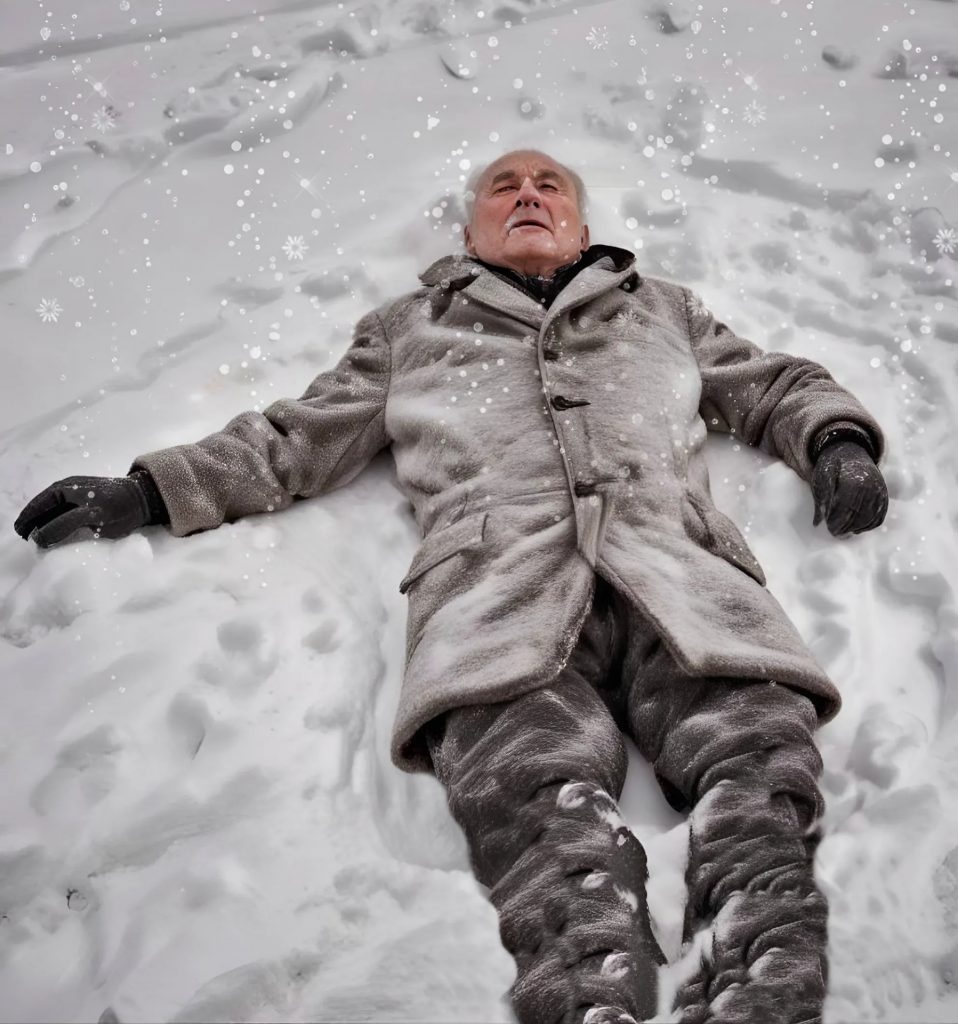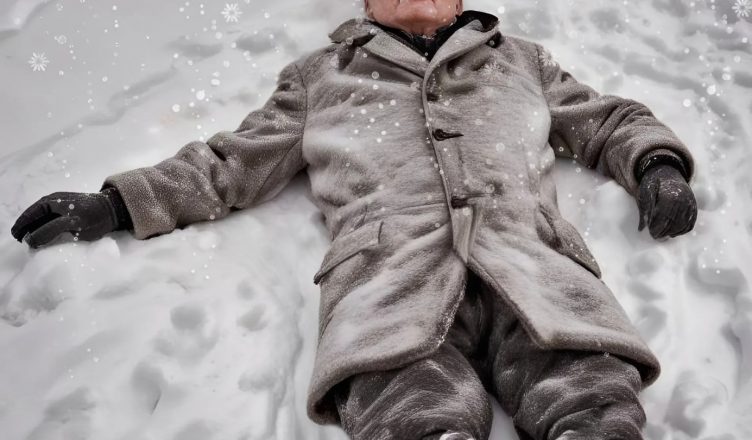Oleksiy had walked that familiar road a thousand times. The sidewalk cracks, the leaning trees, the creaky fence of the neighbor’s garden—all were like old friends. But this walk was different. This time, his steps were heavy, not with age, but with the weight of uncertainty. And though the air bit at his face with icy wind, the cold he felt was not from winter. It was from what he feared awaited him on the other side of the door.
Home. Or at least what once was.
When he entered the small house, the silence struck him first. No warm greeting, no aroma of soup from the kitchen, no curious peek from his granddaughter. Just Anton, his son, and Tetyana, the daughter-in-law he had helped raise as his own. Their faces were hard, unreadable. His fingers trembled slightly as he removed his coat.
«Father, we need to talk,» Anton said bluntly.
Oleksiy paused. He had heard that tone before—from commanders during war, from doctors delivering bad news. It meant finality. Something irreversible.
«We’ve decided,» Anton continued, not meeting his father’s eyes. «You can’t stay here anymore. We need this space, and it’s time we had our own life, without… the complications.»
The words landed one by one, as if stones dropped into a deep well. For a moment, Oleksiy didn’t understand. Then he did.
And it broke him.
A Life Given, A Life Discarded
Once, this had been his house. The foundation laid with his hands, the roof fixed with sweat, the bills paid by decades of toil. And when Anton married, Oleksiy had offered them to move in. “We’ll make room,” he’d said. “Family should stay close.”

He gave them the master bedroom, the warmest in the house. He moved his belongings into the back room, barely large enough to stretch his legs. He gave, and gave, and never asked.
But now, he was the burden.
The father who had taught his son to walk, to read, to stand up for himself—was now an obstacle.
He looked at Tetyana, searching for some flicker of mercy, some discomfort. She looked away.
“Where… am I supposed to go?” he asked quietly, the shame rising like smoke in his throat.
“We’ve talked to a place. A residence. They have room,” Anton replied. “It’s decent. Warm. You’ll have your own space.”
Not home. Not family. Just space.
The Bitter Walk
That night, Oleksiy left with a single bag. The rest would be “packed later,” Anton said. He didn’t want to argue. Didn’t want to beg. The man who had survived war, famine, and the loss of his wife would not plead for a corner of his own house.
He stepped back into the cold. Snow had begun to fall, light at first, then thicker. The street, once so familiar, now looked endless.
He wandered.
The shelter was not far, but he wasn’t ready to arrive.
He passed the park where he had once pushed Anton on the swing. The bakery where he had bought fresh bread every Sunday. The bench where he’d sat with his late wife, holding hands as if the world couldn’t touch them.
Now, it felt like the world had taken everything.
Memory as Refuge
He found an old bench, wiped the snow away, and sat. His coat was thin. His breath turned to mist. He didn’t care.
He thought of his wife. How she would have reacted. She would have cried, yes, but then gathered him close and said, “You are still you. No door they close can take that from you.”
He thought of young Anton, chasing birds in the field, climbing on his shoulders, laughing.
Where had that boy gone?
Was it life that changed him?
Or was it Oleksiy who had taught him to be strong—and in doing so, made him hard?
Not the End
A voice brought him back.
“Sir? Are you okay?”
A young woman, no older than twenty, wearing a red scarf, stood beside him with a paper cup of tea. “You look cold,” she said.
He nodded, unsure what to say.
She sat down beside him, offering the tea.
They didn’t speak much. But in her quiet gesture, there was something that burned warmer than any fireplace.
Compassion.
Final Reflection
Families are not only built with blood. They are built with memory, gratitude, and respect. And sometimes, those break. But humanity—true humanity—can be found in strangers, in gestures, in small cups of tea handed in silence.
Oleksiy did not return to his house that night.
But he walked on.
Because he remembered something his father once told him: “A man’s home is not a place. It is the peace he carries within.”
And now, even cast out, he still carried that peace.
Quiet. Painful.
But unshakable.
